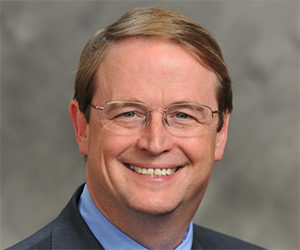 Ministers who are sane do not want to tell people how to vote.
Ministers who are sane do not want to tell people how to vote.
If the minister is in the majority of a red or blue congregation, then taking a side is picking on the one guy who wears a MAGA hat to the potluck or the one woman who has an I’m too poor to vote Republican bumper sticker on her Prius. If the minister is in the minority, then he or she can survive only a limited number of endorsements. If the congregation is evenly divided between Democrats and Republicans, then championing candidates is asking for angry emails.
Being a minister has gotten harder since the 2016 election. When a sermon refers to President Trump by name the preacher has to answer for it during coffee hour. Mentioning poverty, integrity or compassion sounds political. Speaking against greed, violence, xenophobia, homophobia or sexism is controversial.
Politics is depressing, because some important religious issues are not listed in either party’s talking points.
Caring for the poor is a religious issue. The world’s great faiths insist on feeding the hungry. While officials argue over who represents the middle class, only a few put forth policies that offer poor families a real chance.
War is a religious issue. Many seem to have forgotten that our nation has troops in Afghanistan. The suggestion that we love our enemies would sound strange on who-can-scream-the-loudest talk shows.
“Some important religious issues are not listed in either party’s talking points.”
Telling the truth is a religious issue. Politicians have a shrinking concern for accuracy. Constituents give their side a free pass.
Few politicians make serious efforts to consider how free trade could alleviate hunger, basic medical coverage could ease suffering or concern for justice in the international arena could reduce anger towards our country.
Religious people are smart enough to consider issues beyond the last partisan punchline. Immigration, prison reform and the environment matter to religious people because our faiths have something to say about hospitality, revenge and creation.
Imagine how good government could be if those who say God is love took love for the poor, the desire for peace and an insistence on honesty into the voting booth. What wonderful things would happen if our values were derived from virtue rather than partisanship?
Sincere people of faith vote for different candidates for reasons deeply rooted in their faith. They disagree on how to educate children, promote racial understanding and support gender equality, but they share frustration with politicians who appeal to individual interests, national interests and special interests. Religious faith leads away from narrow-mindedness to concern for the good of others.
Religious organizations have no business endorsing candidates, but they have an obligation to share the best of their traditions.
Ministers do not get to avoid the call for justice in order to avoid appearing political.
Religious people disagree on how to care for refugees, but ministers have to preach that it is not acceptable to separate children from their parents.
Religious people disagree on what a prison should look like, but ministers have to preach care for those who are imprisoned.
Religious people disagree on how to respond to victims of sexual assault, but ministers have to preach the necessity of listening.
Religious people can offer ideas beyond politics as usual, speaking for political reform where the insights of faith intersect societal concerns. The movements for civil rights, women’s suffrage and child labor laws began with religious people. When debates focus on which candidate will make voters richest, religious people can be a voice for the oppressed.
The United States is a remarkable country with lofty goals. Even when disappointed by the choices they have been given, religious people appreciate the privilege of voting. Ministers should encourage their congregations to pay attention to more than the superficial and vote with concern for all.
